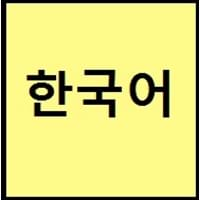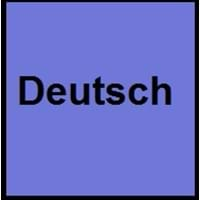Countries
China, Jilin Province, North Korea, South Korea, Yanbian
Austria, Belgium, Germany, Italy, Liechtenstein, Luxembourg, Switzerland
National Language
North Korea, South Korea
Germany
Second Language
Not spoken in any of the countries
North Dakota, United States of America
Speaking Continents
Asia
Europe
Minority Language
Japan, People's Republic of China, Russia, United States of America
Czech Republic, Denmark, Former Soviet Union, France, Hungary, Italy, Namibia, Poland, Romania, Slovakia, Slovenia
Regulated By
The National Institute of the Korean Language
Council for German Orthography
Interesting Facts
- Korean has borrowed words from English and Chinese.
- Korean has two counting systems. First, is based on Chinese characters and numbers are similar to Chinese numbers, and second counting system is from words unique to Korea.
- One of the large group of Indo-Germanic languages is German.
- The second most popular Germanic language spoken today behind English is German language.
Similar To
Chinese and Japanese languages
Dutch, Danish, Norwegian, Swedish and English Languages
Derived From
Not Available
Albanian Languages
Alphabets in
Korean-Alphabets.jpg#200
German-Alphabets.jpg#200
Writing Direction
Left-To-Right, Horizontal, Top-To-Bottom
Left-To-Right, Horizontal
Hello
안녕하세요. (annyeonghaseyo.)
hallo
Thank You
감사합니다 (gamsahabnida)
Danke
How Are You?
어떻게 지내세요? (eotteohge jinaeseyo?)
Wie geht es dir?
Good Night
안녕히 주무세요 (annyeonghi jumuseyo)
gute Nacht
Good Evening
안녕하세요 (annyeonghaseyo.)
guten Abend
Good Afternoon
안녕하십니까 (annyeong hashimnikka)
guten Tag
Good Morning
안녕히 주무셨어요 (An-yŏng-hi ju-mu-shŏ-ssŏ-yo)
guten Morgen
Please
하십시오 (hasibsio)
bitte
Sorry
죄송합니다 (joesonghabnida)
Verzeihung
I Love You
당신을 사랑합니다 (dangsin-eul salanghabnida)
Ich liebe dich
Excuse Me
실례합니다 (sillyehabnida)
Entschuldigung
Dialect 1
Jeju
Swiss German
Where They Speak
South Korea
Switzerland
Dialect 2
Gyeongsang
Swabian German
Where They Speak
South Korea
Germany
Dialect 3
Hamgyŏng
Texas German
Where They Speak
China, North Korea
Texas
How Many People Speak
Not Available
Second Language Speakers
Not Available
Native Name
한국어 (조선말)
Deutsch
Alternative Names
Hanguk Mal, Hanguk Uh
Deutsch, Tedesco
French Name
coréen
allemand
German Name
Koreanisch
Deutsch
Pronunciation
Not Available
[ˈdɔʏtʃ]
Ethnicity
Koreans
Germans
Origin
Before 1st century
6th Century AD
Language Family
Koreanic Family
Indo-European Family
Subgroup
Not Available
Germanic
Branch
Not Available
Western
Early Forms
Old Korean, Middle Korean and Korean
No early forms
Standard Forms
Pluricentric Standard Korean, South Korean standard and North Korean standard
German Standard German, Swiss Standard German and Austrian Standard German
Signed Forms
Korean Sign Language
Signed German
Scope
Individual
Individual
ISO 639 6
Not Available
deus
Glottocode
kore1280
high1287, uppe1397
Linguasphere
45-AAA
52-ACB–dl & -dm
Language Type
Living
Living
Language Linguistic Typology
Subject-Object-Verb
Subject-Object-Verb, Subject-Verb-Object
Language Morphological Typology
Agglutinative
Fusional, Synthetic
All Korean and German Dialects
Most languages have dialects where each dialect differ from other dialect with respect to grammar and vocabulary. Here you will get to know all Korean and German dialects. Various dialects of Korean and German language differ in their pronunciations and words. Dialects of Korean are spoken in different Korean Speaking Countries whereas German Dialects are spoken in different German speaking countries. Also the number of people speaking Korean vs German Dialects varies from few thousands to many millions. Some of the Korean dialects include: Jeju, Gyeongsang. German dialects include: Swiss German , Swabian German. Also learn about dialects in South American Languages and North American Languages.
Korean and German Speaking population
Korean and German speaking population is one of the factors based on which Korean and German languages can be compared. The total count of Korean and German Speaking population in percentage is also given. The percentage of people speaking Korean language is 1.14 % whereas the percentage of people speaking German language is 1.39 %. When we compare the speaking population of any two languages we get to know which of two languages is more popular. Find more details about how many people speak Korean and German on Korean vs German where you will get native speakers, speaking population in percentage and native names.
Korean and German Language Codes
Korean and German language codes are used in those applications where using language names are tedious. Korean and German Language Codes include all the international language codes, glottocodes and linguasphere.





